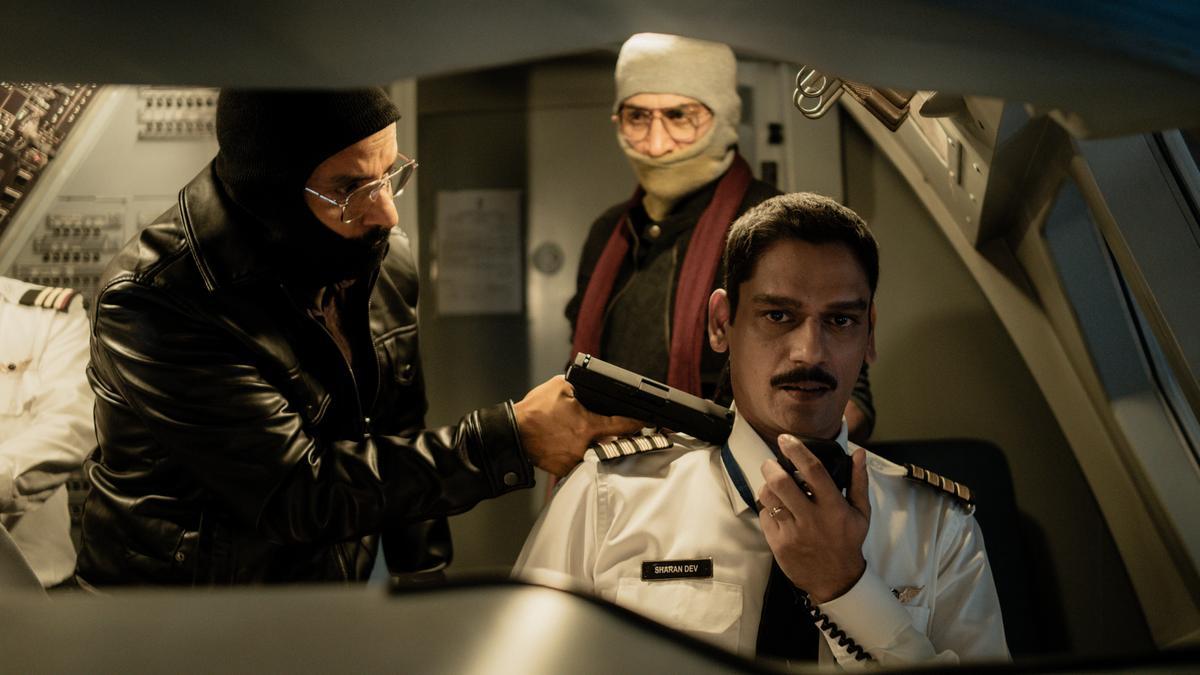
Netflix’s latest web series “IC 814: The Kandahar Hijack” found itself at the center of a controversy this week after several social media users criticized the portrayal of the hijackers’ names in the show. The series, directed by Anubhav Sinha, has sparked outrage due to the depiction of two hijackers with names that some feel inaccurately represent their religious identities. The Information & Broadcasting Ministry responded to this public outcry by summoning Monika Shergill, the content chief of the OTT platform. Furthermore, a public interest litigation has been filed before the Delhi High Court by the president of an organization called ‘Hindu Sena’, alleging that the series distorts the historical and religious context of the hijackers by naming two of them Bhola and Shankar. They have requested the revocation of the series’ certification.
“IC 814: The Kandahar Hijack” is a six-episode dramatization of the hijacking of Indian Airlines Flight IC-814 on December 24, 1999. The flight, which took off from Kathmandu bound for Delhi, was diverted multiple times, landing in Amritsar, Lahore, Dubai, and eventually Kandahar in Taliban-controlled Afghanistan. The hijacking ended after six days of intense negotiations, resulting in the release of three notorious terrorists—Masood Azhar, Omar Saeed Sheikh, and Mushtaq Ahmad Zargar—in exchange for the safety of the passengers and crew.
The series draws partially from “Flight To Fear,” a firsthand account of the events documented by Captain Devi Sharan, the pilot of the hijacked plane, in collaboration with journalist Srinjoy Chowdhury. Although the series includes a disclaimer stating it is a work of fiction inspired by real events, it has nevertheless ignited heated debates regarding its historical accuracy and the portrayal of sensitive details.
Criticism focuses on the creative liberties taken by the makers of the series, specifically the decision to depict some hijackers with the names Bhola and Shankar. According to historical sources and journalistic accounts from the period, the hijackers did use aliases. For example, a press release from the Union Home Ministry dated January 6, 2000, identified the hijackers by their real names—Ibrahim Athar, Shahid Akhtar Sayeed, Sunny Ahmed Qazi, Mistri Zahoor Ibrahim, and Shakir—and confirmed that they used codenames during the hijacking. The release noted that “To the passengers of the hijacked plane these hijackers came to be known respectively as (1) Chief, (2) Doctor, (3) Burger, (4) Bhola, and (5) Shankar, the names by which the hijackers invariably addressed one another.
.”
While some viewers argue that the depiction is misleading, others contend that these details are secondary to the series’ broader narrative. Prominent political voices have entered the debate, with BJP leader Amit Malviya stating on X (formerly Twitter), “The hijackers of IC-814 were dreaded terrorists, who acquired aliases to hide their Muslim identities. Filmmaker Anubhav Sinha, legitimized their criminal intent, by furthering their non-Muslim names. Result? Decades later, people will think Hindus hijacked IC-814.”
The series does indeed unmask the hijacker known as Chief when negotiations reach a critical juncture, revealing him to be the brother of Masood Azhar. However, the names Bhola and Shankar are used minimally, appearing only once across the six episodes. These characters are presented as minor players within the hijacking ordeal.
Journalist Neelesh Misra, who also wrote a book on the hijacking, weighed in on the issue, pointing out that the hierarchy and dynamics among the hijackers were more complex than a simple name can convey. He acknowledged that while the series could have better clarified the use of aliases, it is also important to recognize the narrative and dramatic constraints within which the series operates.
Public discussion around the series has also touched upon the broader implications of historical representation in media. Critics fear that dramatized adaptations can sometimes blur the lines between fact and fiction, potentially altering public perception of historical events over time. This controversy underscores the ongoing challenge faced by filmmakers and creators in balancing creative expression with historical accuracy and sensitivity.
As the legal and public debates continue, “IC 814: The Kandahar Hijack” remains a focal point for discussions on media responsibility, historical representation, and the impact of creative liberties in storytelling. It stands as a reminder of the delicate interplay between dramatization and historical fidelity, especially in narratives involving traumatic and politically charged events.












